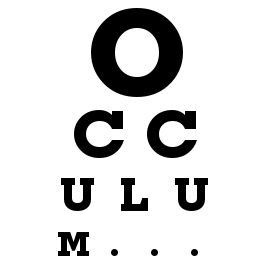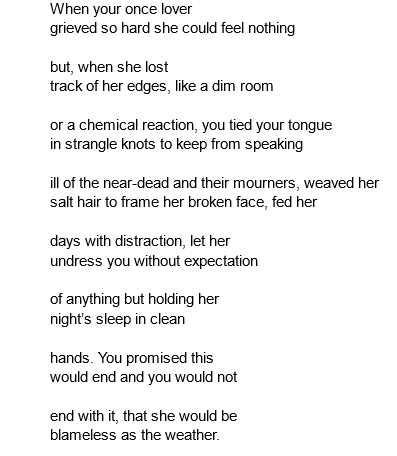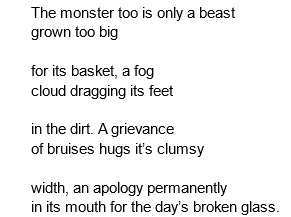“My name is Zachariah Anders. And I’m a spellaholic.”
The other members of the workshop glared at him with the most incredulous looks anyone could muster, as if a child could’ve walked into the meeting and said something ten times as intelligent. This was the second meeting for magicians with low-esteem of the month and they were all supposed to introduce themselves last time, but Martha decided to take up forty-five minutes talking about her dumbass problems, as if accidentally signing away your first-born to a third level demon was something so novel and unique and not totally overdone by every beginner witch who was too stupid to read those contracts. Oh, how she wailed and wailed, on and on, until the meeting had to be called short because Mammon had broken through into Earth once again. And now, they stared at Zach like a braindead group of owls.
“Go on now, Zach,” said Madame Mori, petting the Pomeranian on her lap, “elaborate for us, dear.”
She was the self-designated leader of the group, a plump old witch who wore a purple turban about her head and what appeared to be a bathrobe from the early eighties, with a dozen hoop earrings that jangled whenever she turned her head. In other words, she was far too campy for the current decade and probably would’ve died off years ago if she didn’t have that dog with her. The familiar followed her every move, and now smiled a demonic smile at Zach.
“Very well,” he said.
It was the fifteenth of November on Merrow Island. Zach didn’t live there because it was far too overrun with tourists at the best of times, but as soon as the late autumn chill arrived, it was practically deserted. The forests off the beaten path were especially nice, but the only reason a magician would spend any reasonable time at a place like that was because it was a notable crossroad, and that is precisely why Zach had made his way there, to a clearing in the woods where blue will-o’-the-wisp danced away from him into the brambles.
“How about here?” he had said to his familiar. The black cat leapt from his grasp and walked around the clearing once, measuring with his eyes, before giving the politest meow it could muster. “Finally!”
“Don’t finally me,” replied the cat, its purple eyes glimmering. “This is the only clearing a hundred feet across each side that you’ve found. Now get your athame and chalice out before we’re mauled by a werewolf or some stupid shit like that.”
Zach rolled his eyes and reached into his satchel, withdrawing a dagger with an obsidian handle. He pointed it at the center of the clearing, and within an instant, a magic circle glowed red-orange at his feet, a hundred feet in diameter.
The rest was simple. Toss the following into the center of the circle: a bat’s foot, a widow’s anniversary tear, blood of a virgin of thirty-seven years (preferably in a glass vial), a torn page from the tenth chapter of your second least favorite book, vegetable oil, and a fingernail or hair sample from the caster. Zach sat at the edge of the magic circle with the athame and a gold chalice to his left, his familiar sitting on his right. He closed his eyes.
“O, Horned God. O, Mother Goddess. Never once I have been disloyal to either of you. I pray you do this one thing for me. Show me the one who will love me ’till the end of time. Send me the one who will complete me.”
The ingredients vanished in a puff of sparks. They heard him, thank fuck for that. A sudden wind blew by and he sat shivering for a few moments until a blast of heat hit his back and all the world appeared to glow the same color as the circle. His familiar hissed and leapt onto his chest, clawing into the fabric of his jacket. Giant columns of fire blasted from the earth all around him, all around the circle, twisting like tornadoes into the sky. Sweat dripped from him, and fear speared his heart. At the center of the circle, a crack in the ground had widened until black, inky hands reached out, an impossibly dark form heaving itself from the depths of hell. Tendrils wriggled from every side of it, spraying tar-like blotches onto the grass and dirt. It stared at Zach with no discernable eyes, then began to approach in a poor imitation of a human walk, almost as if it were dancing, swaying from side to side like the worst kind of drunkard. Then it was upon him.
“I got out of that situation pretty easily,” Zach finished, “but that thing’s been following me ever since. It ate a few children last week. So yeah, I’m a spellaholic, but I’ve been trying to stop. That wasn’t even the first time I tried that spell.”
The others didn’t speak a word. They would’ve made pretty convincing statues if they stopped blinking every so often. Madame Mori lit a cigarette.
“Well, shit,” she said.
Darren Yanes is an undergrad student studying Creative Writing at the University of Chicago. His stories tend to revel in the strange, the unspeakable, and the nonsensical, and how they interfere with ordinary people.







